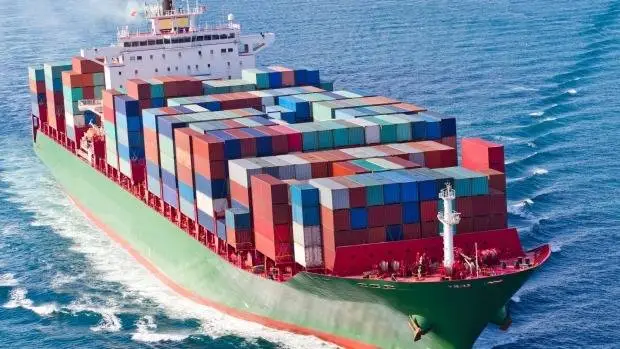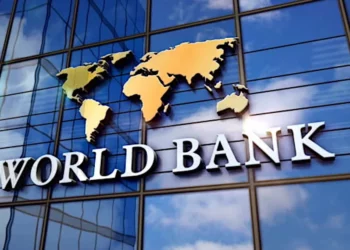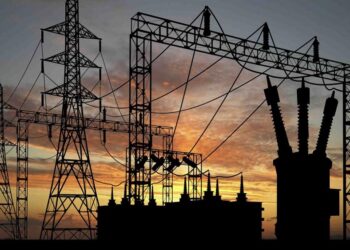An estimated N130billion is lost annually by the Nigerian economy due to diversion of cargoes to neighboring countries by importers.
The diversion is fuelled by inefficiency of the nation’s ports due to low draught, dilapidated port infrastructure, archaic clearing process, corruption, lack of automation among others.
Other factors are long dwell time of cargoes at the ports as well as the terrible state of port access roads were responsible for this as land locked countries such as Chad and Niger Republic, who, before now, were using the country’s ports as transit points have resorted to use ports of Ghana, Togo and Benin Republic.
The choice of these neighbouring countries port, according to investigation, was as a result of the efficiency of the clearing processes that take few hours, unlike Nigeria which takes weeks to clear cargoes.
To this end, Nigeria is losing maritime businesses to the aforementioned countries through import duty, taxes to the Nigerian Marítime Administration and Safety Agency (NIMASA); Nigerian Ports Authority (NPA); Nigeria Customs Service (NCS) among others.
Though, statistics of the NPA showed that Nigerian Ports recorded 78.4million metric tonnes of cargo volume imported into the country in 2020, the nation’s seaports still loses transit cargoes of landlocked countries to neighbouring parts of Benin, Togo, Ghana and Ivory Coast.
The loss of cargoes belonging to land locked transit cargoes to neighbouring ports is evident with the increment in cargo throughput of neighbouring ports as Togo ports record 12% increment from about 22.7 million tons to about 25.5 million metric tons between 2019-2020, according to provisional data provided by the Togo port authorities.
Togo port container import also rises from 1.7million teu in 2020 to 1.9million teu in 2021 showing growth in their container trade.
According to statistics from www.togofirst.com, investors’ guide website for economic news on the Republic of Togo, the overall traffic of the Port of Lomé increased by about 12%, from about 22.7 million tons to about 25.5 million tons, according to provisional data provided by the port authorities.
Similarly, the ports of Cotonou in 2019 processes an annual freight volume of 12 million tonnes, according to Port of Antwerp International (PAI) while, port of Lome between 2019 and 2020, processes 25.5millions tonnes of cargoes while 12 million tonnes of freight were handled in 2021, consisting of 650,000 TEU containers, 7.7 million tonnes of discharged cargo, 2.1 million tonnes of loaded cargo, and over 100,000 vehicle units.
Statistics showed that the two ports in Ghana -Tema and Takoradi recorded 25,512,289mt, 27,700,343 and 26,385,923 metric respectively as Cargo throughput for both Port in 2018, 2019 and 2020.
The statistics showed that 16,594,685, 17,316,276 and 18,909,586metric tonnes of cargo were recorded in Tema Port while, Takoradi Port recorded 8,917,604 in 2018, 10,384,067 in 2019 and 7, 476,337 in 2020 of seaborne trade respectively
However, despite recording more throughput than its comptemporaries, Nigeria recorded a decrease in the number of cargo throughput and vessels’ that call into the nation’s ports in 2020.
According to the NPA report, the number of ships that sailed into the nation’s port (vessel call) fell by 6.6 per cent, year-on-year, (y/y) to 3972 in 2020 from 4251 in 2019.
Similarly, the volume of goods imported into the country, or cargo throughput fell by 2.2 per cent y/y to 78.4 million metric tonnes (MT) in 2020 from 80.2 million MT in 2019.
The report reads, “In 2019, we had a total of 4,251 vessels that called into our ports, according to the ship traffic data. In 2020, we had 3972. So, we had a drop. In terms of cargo throughput, we had 78.4 million metric tonnes in 2020 while in 2019 the nation recorded 80.2 million MT in 2019.
Speaking, the acting President, Association of Nigeria Licensed Customs Agents (ANLCA), Kayode Farinto, lamented that the nation’s second-largest revenue earner, after oil, was left to wallop in such a sorry state with dilapidated infrastructure.
According to him, there are too many factors that are drawing the sector backward, ranging from bad access roads to the ports, to high shipping costs, shallow water draft at seaports.
“There are too many issues responsible for the setback. The government does not have either the political will or is not serious about implementing those good policies. You should expect that before the end of this year, we are going to have more than 40 percent drop in cargo coming to Nigerian ports.”
“The neighbouring countries, such as Ghana, Côte d’Ivoire, Ghana and Togo are rapidly developing their seaports while Nigeria is currently losing grip of the shipping economy due to abandonment of the sector, which is the second revenue earner for the government after oil,” he noted.
The National President, National Council of Managing Director of Licensed Customs Agents (NCMDLCA), Lucky Amiwero, said the neighbouring ports have already positioned their ports as millennium ports, preferred, transshipment or load center, adding that most West African ports built their ports to accommodate Nigerian- bound cargo, knowing about the country’s poor infrastructure.
He identified the neighbouring ports, which have either completed their deep-sea projects or near completion at Cotonou, Benin Republic, Lome, Togo, Accra, Ghana and Cameroun.
He called on the Federal Government to wake up by designing the concept of a deep-sea/ transshipment center to accommodate large E-Class vessels/mega-ships of 8000- 20000 TEUs, that are currently demanded regionally and globally, which is the only solution to the diversion of goods to neighbouring ports.
He advised that with international best practices, Nigeria must design the National Guarantee system to cover the payment of import duty taxes at the time of transit; Custom Seal that ensures the physical integrity of the goods while in transit, making sure that the goods start and exit the transit in its original state; Implement electronic tracking system enabling Customs to track and locate transit vehicles and guide intervention force including Customs staff; a document system to enable transit document issued at the start of Transit journey to be accepted by transport and Custom authority along with transit.
Amiwero identified an inefficient port system as to why the country lost the transshipment hub status to other West African countries.
He said except there is a change in infrastructure rehabilitation, Nigeria will continue to lose cargoes to neighbouring countries, which have deep seaports and better facilities.
The freight forwarder lamented that Nigerian ports cannot accommodate mega-ships with 8000-20000 TEUs, arguing that this was against the trend in neighbouring ports.
He said the Federal government needs to address the unwholesome practices of manipulated delays by providers of shipping services and other government agencies, leading to high demurrage, rent, and high transactional costs.
Amiwero stated that such practices are inimical to the efficiency of the port system, adding that such issues against Nigerian ports need to be addressed for the sake of the national economy.
“There is need to reclaim our cargo from neighboring West African countries that are now a hub for Nigeria cargos, by working out a mechanism for a better developed regional hub to consolidate on our destination of Nigerian cargo that has been siphoned by regional ports,” he advised.
Port’s Inefficiency: As Nigeria Loses N130bn To Cargo Diversion
ANOTHER GOOD READ
Most Recent
CBN Clarifies BVN Fee For Nigerians In Diaspora
July 7, 2025
LG Launches “Radio Optimism” Campaign
July 7, 2025
Are Africans Genetically Inferior?
July 7, 2025















